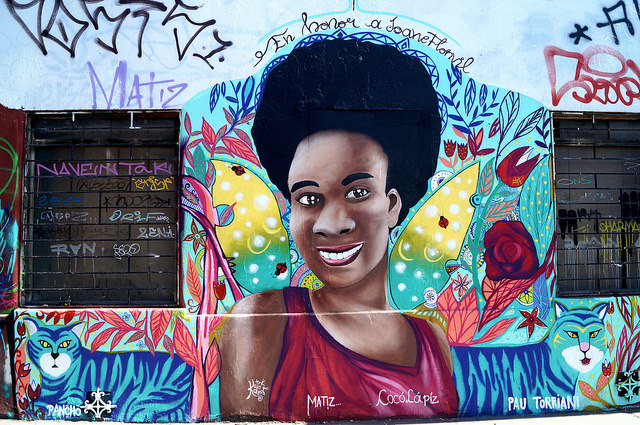President Donald Trump delivered his first State of the Union address Tuesday night. It was to be his clarion call to bipartisanship. Instead, under the guise of a compromise position on the fate of nearly 800,000 DACA (Deferred Action for Childhood Arrivals) recipients, Trump bashed Latino immigrants just like he did on the day he launched his presidential campaign in 2015, when he said of Mexicans: “They’re bringing drugs. They’re bringing crime. They’re rapists.”
Hours before the State of the Union, U.S. District Judge Nicholas Garaufis in New York released a scathing rebuke of Trump during a court hearing on whether Trump’s cancellation of DACA was illegal. Garaufis said he would not ignore the president’s “vicious … recurring, redundant drumbeat of anti-Latino commentary.” The judge’s words could have served as a summary of Trump’s address.
Many members of Congress had invited special guests to attend the State of the Union, among them “Dreamers,” undocumented immigrants and their advocates. Republican Rep. Paul Gosar of Arizona asked the U.S. Capitol Police to check the identification of all those attending, and to arrest undocumented immigrants in attendance. His request was ignored.
For millions of immigrants and their family members around the U.S., the State of the Union was not just a political speech; their lives hang in the balance. President Barack Obama enacted DACA through executive order in 2012, allowing people who were brought to the U.S. as children, without proper documentation, to register with the federal government in order to receive a work permit and protection from deportation. Among other things, they undergo a background check and provide their address and biometric data.
Commonly referred to as “Dreamers,” they are, in essence, stateless. Their status in the U.S. is uncertain, and they have little or no connection to their nation of origin. Older immigrants, the more than 10 million people here without documentation but who do not qualify for DACA, are in similar straits, living under the daily threat of arrest and deportation, living in the shadows.
Trump cited the U.S.-based Salvadoran criminal gang MS-13 four times in his speech, fanning the flames of racism and fear of violent crime. As a sop to Democrats, he suggested that 1.8 million Dreamers (who he referred to only as “illegal immigrants”) might be given a pathway to citizenship. But in exchange, he demanded a slew of restrictive changes to U.S. immigration policy, which would be the most significant overhaul in more than 50 years, including the elimination of the green-card lottery, limiting family unification by preventing immigrants from joining family members already in the U.S., and $25 billion to build a border wall and to further militarize the U.S.-Mexico border.
Democratic Sen. Maria Cantwell of Washington invited a woman who has been targeted for deportation by the Trump administration. Maru Mora Villalpando is a leader with the group Northwest Detention Center Resistance. The morning after the speech, Mora Villalpando told us on the “Democracy Now!” news hour: “He scapegoated my community, along with many other communities. But it was important to show that we’re not afraid, and we’re going to continue in the struggle.”
Despite boycotting the speech herself, Brooklyn Congressmember Yvette Clarke invited immigrant leader Ravi Ragbir, executive director of the New York City-based New Sanctuary Coalition. Remarkably, he had been released from nearly three weeks of detention just the night before. He was detained by Immigration and Customs Enforcement on Jan. 11 and rushed into deportation proceedings. Mass protests and legal action prevented his deportation to Trinidad and Tobago on Jan. 12. A judge then ordered him returned from the Krome Detention Center in Florida back to a New York detention center while his case proceeded. Then, in a stunning decision Monday, U.S. District Judge Katherine B. Forrest ordered Ravi Ragbir immediately released.
She wrote: “It ought not to be—and it has never before been—that those who have lived without incident in this country for years are subjected to treatment we associate with regimes we revile as unjust, regimes where those who have long lived in a country may be taken without notice from streets, home, and work. And sent away. We are not that country, and woe be the day when we become that country under a fiction that laws allow it. We have a law higher than any that may be so interpreted — and that is our Constitution.”
The opening words of the U.S. Constitution are “We the People.” Far more powerful than any single president, it is that collective force that will save us.






